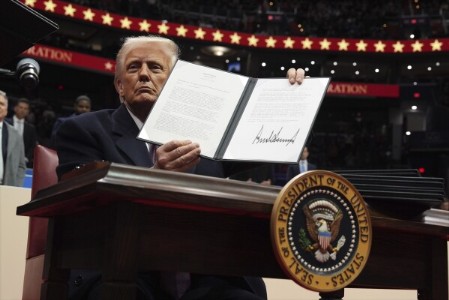India supports Pakistan's resolution at UN condemning Quran burning in Sweden; US & European Union backs out
Total Views | 196
New Delhi, July 13: In a huge development, India backed Pakistan’s resolution at the United Nations Human Rights Council (UNHCR) condemning Quran-burning protests across Europe.
The resolution called for the governments to enforce stricter measures to prevent "religious hatred", while the West countries opposed it claiming that intervention could hamper freedom of expression.

On Wednesday, the resolution, brought by Pakistan and Palestine, got a tremendous response with a 28-12 vote, while seven nations abstained. It was introduced on behalf of the 57-nation Organisation of Islamic Cooperation (OIC). Many developing countries supported the measure, including China, India, and nations in West Asia (Middle East) and Africa.
Among the countries who were against the resolution were the United States and the European Union, who said that it goes against their view on human rights and freedom of expression.
The resolution comes in the wake of Swedish authorities allowing an Iraqi immigrant to burn the Quran outside a Stockholm mosque last month, sparking outrage across the Muslim world and demands by Muslim states for action.
Also Read: Sweden police approve Quran burning outside Stockholm Mosque
Sweden has been in the crosshairs of a raging debate whether to uphold freedom of expression or prevent the acts that are deemed to be targeting a particular community, especially the Muslims, in the wake of the Quran burning protests.
On June 28, an Iraqi immigrant to Sweden ripped, burned, and stomped on the Quran outside a Stockholm mosque last month during the Eid al-Adha holiday. Swedish police had authorised the gathering, but they subsequently opened an investigation for "agitation against an ethnic group", on the grounds that the burning took place in front of a mosque.
'Does not seek to curtail the right to free speech'
Following the conclusion of the vote, Pakistan’s Ambassador Khalil Hashmi clarified that the measure “does not seek to curtail the right to free speech,” instead, it tries to strike a “prudent balance” between it and “special duties and responsibilities.”
Also Read: Pak declares 'war' against Sweden over Quran’s desecration; PM Sharif calls for nationwide protests
“The opposition of a few in the room has emanated from their unwillingness to condemn the public desecration of the Holy Quran or any other religious book. They lack political, legal and moral courage to condemn this act, and it was the minimum that the council could have expected from them.”
The US Permanent Representative to the U.N. Human Rights Council, Michele Taylor, on the other hand, decried the vote's outcome, saying that the United States' concerns about the initiative "were not taken seriously." "I believe with a little more time and more open discussion, we could have also found a way forward together on this resolution," she said.
Bharati Web






